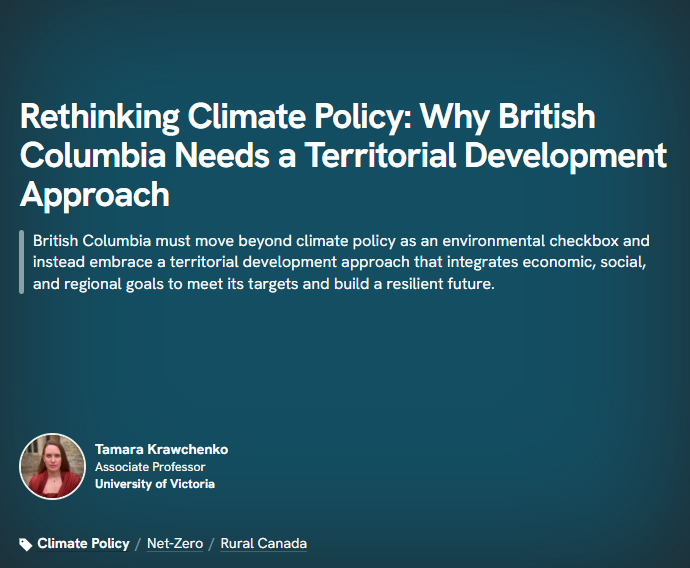Tamara Krawchenko argues climate policy should be treated as regional development policy
September 24, 2025

Tamara Krawchenko argues climate policy should be treated as regional development policy
Tamara Krawchenko, Associate Professor at UVic’s School of Public Administration, recently published an editorial in TheFutureEconomy.ca arguing that climate policy should be conceived as regional development policy. Drawing from an upcoming research paper commissioned for the CleanBC review and supported by the Pacific Institute for Climate Solutions (PICS), Krawchenko emphasizes that BC has already made strides toward this approach, but more can be done—especially outside major urban areas, where institutional capacity and resources are often limited.
The editorial highlights that scale and capacity building must be central to effective climate action in rural and remote communities, where practical implementation is complex. Based on extensive research across regions and her hands-on work with the Northern Regional Energy Dialogues team, Krawchenko insists that regional development is not a one-size-fits-all recipe but a process requiring long-term engagement and tailored support. With the Dialogue’s upcoming second phase, she is helping build scale and link energy systems to local development and community benefit—not just as an academic, but directly in partnership with communities.
Krawchenko’s editorial encourages policymakers, researchers, and citizens to embrace territorial development as an essential climate solution—recognizing the messy realities, local challenges, and transformative potential inherent in treating climate policy as regional development policy.
